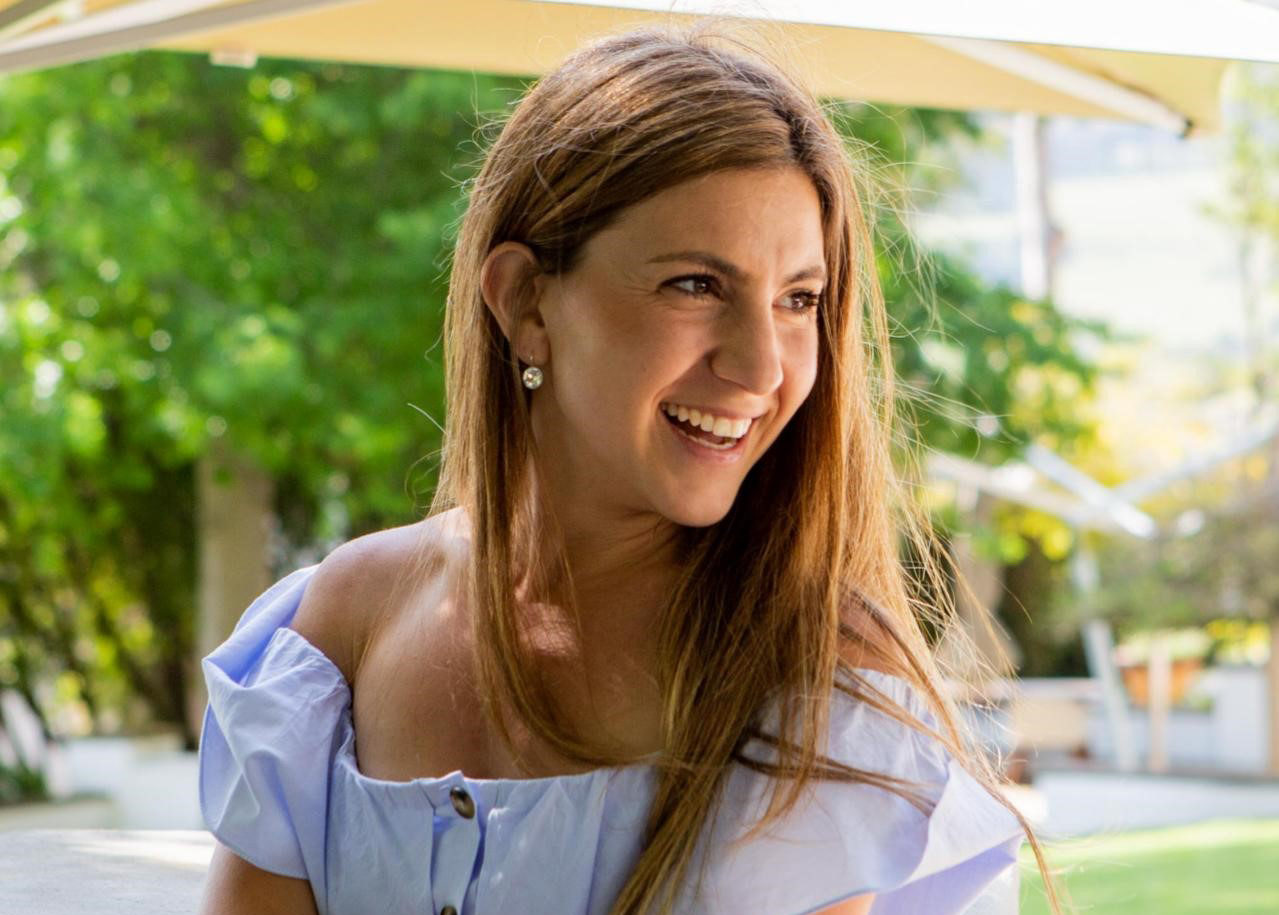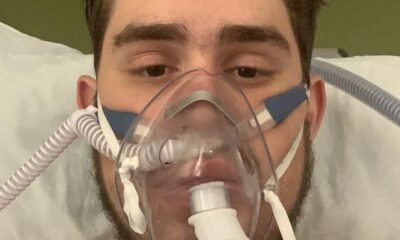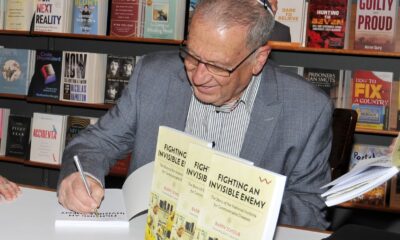
Opinion News

I will never forget
It was a hot summer evening on 6 December when I felt the first chill. Surely it wasn’t COVID-19? My husband and parents had it two months earlier, and surely the combination of close contact with them and my short, mild symptoms, albeit me testing negative at the time, meant that I was already exposed?
Well, 39+ degree relentless temperatures and two days of agony later, I landed up at Netcare’s Christiaan Barnard Memorial Hospital’s casualty unit, having just received my positive COVID-19 result.
Not even allowed to walk me in, my husband had to watch his wife and the mother of his two young kids – the youngest 16 months old – shivering and hunched over in pain, enter the “red COVID zone” triage shipping container. I didn’t look back.
I was classified “yellow” – my sats (oxygen saturation levels) were in the mid-90s – so my wait in casualty was only a few hours long. Every casualty bed was full. The on-call doctor and nurses were fluttering between patients. This was early December, before the height of the second wave, before the festive season, and before hospitals were officially declared full.
According to the second physician who looked after me – the first tested positive for COVID-19 on my second day – COVID-19 can attack almost anything in the body. And although the lungs are ground zero, it can reach many organs. For me, it started with kidneys, head, sinus, chest, and finally lungs.
Just about everyone in the ward, including me, had COVID-19 pneumonia and was on oxygen. Why would it have such a devastating impact on a 30-year-old who has never had health issues, never smoked, whose lungs have conquered many cycle tours, dancing and sporting events, including the ironman 70.3, whose lungs have never known pneumonia or never had difficulty breathing?
Doctors, if you were lucky to see them every day, had long lists of patients, and if you weren’t in intensive care, you were fortunate to get a five-minute slot with them before 17:00. The ward I was in had capacity for 12, but had 20 patients.
Nurses, kitchen staff, and doctors were sweating behind their heavy PPE (personal protective equipment) and they were probably dehydrated and in need of a break.
On my fifth night in hospital, I recognised a nurse from the maternity ward from a year and a half earlier. She had moved into the COVID-19 ward that day because they needed extra hands. This was her first time wearing heavy PPE. She was feeling vulnerable, and was worried about getting COVID-19. If things took a bad turn, who would look after her child? We spoke. We cried.
I will never forget the reshuffling of beds and rooms to make space for more patients and to adequately “team” up those of similar prognoses.
The switchboard phone was ringing off the hook to find space in our ward for admissions from ICU, from casualty, and from the “non-COVID” ward.
I moved rooms once, and I had three different roommates during my stay, all of whom had a profound impact on me. The emergency buzzers sounded constantly. I tried not to press mine too often for fear that a nurse would attend to me over someone who couldn’t breathe. Except for one night…
On night three in hospital, things took a turn for the worse. The medication through the IV drip didn’t work to drop my fever or ease my intense body pain, so after no response to the emergency buzzer, I found myself throwing up on the floor next to the bed.
My chest had started to close and I couldn’t get air in. I felt overwhelmed by pain, panic, sadness, and loneliness, and it was at this moment that I wasn’t sure I was going to make it.
When eventually I was given more drugs after a nurse came to assist and had a piece of toast that tasted like cardboard, I was inspired by non-other than my roommate at the time, a 38-year-old cancer patient who got COVID-19 during her third round of chemotherapy. She told me that since her diagnosis three months earlier, she had turned to G-d for healing and light. She was at peace with the fact that he had a path for her, and she trusted him with this path. We spoke for many hours about faith, the meaning of life, and appreciating what we have.
I decided, via WhatsApp, to give my husband and my parents all my passwords, instructions, and documents to make things swifter in the event that I didn’t go home.
That night, I thought about how devastated my parents, husband, and children would be. I thought about my brother, whose wedding I wouldn’t be able to witness. I thought about my close friends, my special cousins, and my work colleagues, all of whom would struggle with me being gone, let alone reel over the premature loss of a young person.
I didn’t think about the aspirations that I hadn’t fulfilled, I thought about the people I would leave behind.
My husband collected me from the shipping container eight days later. Sadly, not everybody was that lucky.
I will never forget,
The fireball that was trying to escape through my head and sinus, a burning that I’ve never felt before,
The 40-degree temperatures that made me shake and shiver until my jaw locked.
The back pain, from my kidneys, that felt like two balloons were going to pop under my rib cage.
The night that I couldn’t breathe while I was throwing up next to my hospital bed, and proceeded to give my family my passwords and my will.
The constant sound of emergency buzzers and loud coughing escalating through the nights.
The lady named Mrs A who literally flew out of ICU after the man opposite her died. She spent a night in my room with me, and we spoke most of the evening.
The sweat on the forehead of the nurses and doctors, their tired but determined eyes, their thick and heavy PPE, their stories.
The dread of the anti-clot injections, the blood tests, steroids, change in drips, arterial vein draws, scans, x-rays, sats … did I say sats … all day, every day, for eight days.
Waking up at 03:00 on my first night back from hospital, trying to reach for oxygen in a panic, only to realise that I was in my own bed, and I… Could… Breathe.
My first breath of air outside the hospital in eight days, the sun on my skin, the wrap that I ate in the car on the way home, the first hug I got from my girls.
The seventh night of Chanukah that I spent at home in 2020 with my family by my side, a fridge and freezer full of food, feeling so, so, so blessed.
COVID-19, I’m not sure why you came into my family multiple times this year, why you gave these healthy, fit, 30-year-young lungs pneumonia, and made me very, very sick. What I do know is that I’m going to take this gift of life and do great things with it.
- Dalya Abromowitz is an investment analyst and mother of two based in Cape Town.











Lauren Trappler
January 14, 2021 at 11:58 am
Kol Ha Kavod Dals!